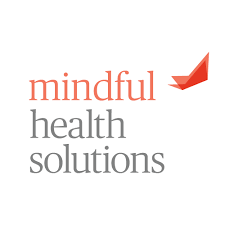

We’re a team of clinicians and staff who have dedicated our lives to research, education, and treating those with mental health conditions. We’re especially passionate about helping those with Treatment-Resistant Depression and providing the most advanced therapies available, including Transcranial Magnetic Stimulation (TMS) and esketamine nasal spray, both FDA-approved for advanced depression.
Mental health conditions can be profoundly painful and isolating, making it difficult to seek help. Our team provides a unique, patient-centered experience to help you find the appropriate treatment and relief from your symptoms. We’re grateful to be practicing psychiatry during this era in which there are so many new treatment possibilities and new hope for those with mental health conditions.




Dr. Oana Galicki is an experienced and empathetic practitioner dedicated to helping her patients understand their mental health conditions and find appropriate treatments. She is humbled to walk the path to wellness with her patients, and help them transform their lives.
She has a strong academic and psychopharmacologic background as well as extensive training in various modalities of psychotherapy. With Mindful Health, Dr. Oana Galicki focuses in areas such as Medication management, TMS therapy, and Esketamine. She is determined to find what works best for each patient and work together to create a treatment plan for them.
When she was young, Dr. Bamgbose was enthralled with the stories her father told her about his work as a clinical psychologist. She appreciated how he was able to talk to people and learn their thoughts, hopes, and fears, and help them integrate all of these elements into a more satisfying life. That, combined with a plethora of physicians in her family who always encouraged her to pursue medicine, led her down the path to psychiatry.
Dr. Bamgbose has an easy-going, laid back style. She loves connecting with her patients and making them feel comfortable sharing anything with her. She is very thoughtful and values collaborating with her patient on a treatment plan. She thinks humor is important and enjoys laughing with her patients as well!
She looks forward to integrating both Esketamine nasal spray and Transcranial Magnetic Stimulation (TMS) into her practice. TMS offers a non-medication intervention that may be better tolerated for some patients and thus allows greater flexibility in treatment planning. This is especially important for pregnant patients and others who want to explore other nonpharmacological treatment methods.
Although his undergraduate learning primed his interest in the neuroscience of human experience, he initially entered the medical field with the aspiration to become a primary care physician, as he greatly idealized the doctor-patient relationship. Over time through his medical studies and personal experiences, he developed an appreciation for the profound psychological and social consequences of psychiatric conditions. Caring for individuals living with these experiences as a psychiatrist became a natural fit for him, and he hasn’t looked back since.
Dr. Chin has a collaborative and holistic approach with his patients. Taking time to understand his patients’ personalities, situations, and preferences enhance his ability to modulate his approach and provide the most personalized care. He views clinical medicine as the art of understanding and responding to individual value judgments, and psychiatric practice is no different. He values his patients’ questions as it opens the door for dialogue and understanding of the best treatment for the individual.
For Dr. Chin, Transcranial Magnetic Stimulation (TMS) is an effective, non-invasive therapeutic technology, and it provides an opportunity of robust improvement for many patients unresponsive to medications and psychotherapy. Having worked with patients with treatment-resistant conditions, he is excited to be able to offer this option to his patients. Moreover, the development of TMS as a therapeutic has contributed to the fundamental understanding of clinical depression and the brain’s role in other psychiatric conditions.
Lori McClain is a Psychiatric Mental Health Nurse Practitioner with a focus in various degrees of psychosis. She often works with people who are newly diagnosed or in early stages of their mental condition journey, and knows how to help patients navigate that time in their lives. In her words, many people have been affected by the current climate of events over the last few years and are experiencing new problems and emotions. She sees a good amount of patients struggling from chronic illness as well.
As a Nurse Practitioner, her ideal working style is to remain open minded and non-judgmental no matter the situation. She strives to meet patients at their level of functioning, and also to practice harm-reduction with them throughout their treatment. She loves to laugh, and often can be the best person to go to for a smile even when things are tough.
The idea of offering alternative treatments is extremely important to Lori McClain as a Practitioner. Having treatments such as Transcranial Magnetic Stimulation (TMS) and esketamine allows for patients to know that there are multiple pathways for treatment, and that there is bound to be a solution that works best for them when medications don’t seem like enough. Being able to educate people that there are options for treatment resistance and offer them hope is incredibly rewarding to Lori.
After starting medical school initially aiming towards pediatrics, Dr. Rozon quickly found himself drawn to psychiatry. He was astounded by the impact psychiatric illness could have on both individuals and their wider communities. He was similarly amazed by the effect treatment could have in changing patients’ lives. As a Latino familiar with the stigma often attached to mental health in Latinx cultures, he also gravitated to the work of normalizing conversations about mental health in communities of color.
Dr. Rozon has a friendly and laidback approach to working with patients. He strives to establish a collaborative relationship with his patients built on mutual trust, respect, and often laughter. He wants his patients to feel comfortable and well informed to make decisions about their care while working with him. His goal is always to create treatment plans built on the latest evidence and patients’ values.
He is excited to incorporate both esketamine nasal spray and Transcranial Magnetic Stimulation (TMS) into his practice. He has seen firsthand the impact interventional techniques can have on patients and believes these treatments are modern tools in the fight against treatment-resistant depression that will continue to gain wider use in the future.
Misha Elder is a Licensed Clinical Social Worker, who is joining Mindful Health Solutions as a Psychotherapist. She practices general psychology and works with clients who are struggling with depression, anxiety, trauma, prenatal and postpartum issues, anger, parenting challenges, and couples issues. She has a concentrated interest in the family of origin trauma.
Misha can trace the origins of her interest in the human mind to very early childhood. She always had a natural curiosity about why people behave the way they do and showed a tendency to turn toward those who were struggling around her. She would later learn that these inclinations were the building blocks toward a career in psychology and that her early observations of human dynamics would prove instrumental in connecting with my clients.
As a Psychotherapist, she draws from a variety of psychotherapy orientations including cognitive behavioral therapy (CBT), Acceptance and Commitment Therapy (ACT), and Internal Family Systems (IFS) Therapy. Misha has a patient-first and collaborative approach, as she strives to tailor each treatment plan to each client, using what works and leaving the rest.
Misha Elder decided to join Mindful Health Solutions due to its focus on evidence-based treatments, particularly the newer research on psychedelic-assisted treatment. She is excited to be a part of a clinic that is embracing the new frontier of mental health, by using treatments such as TMS therapy and esketamine treatments as successful alternatives to traditional medications.
